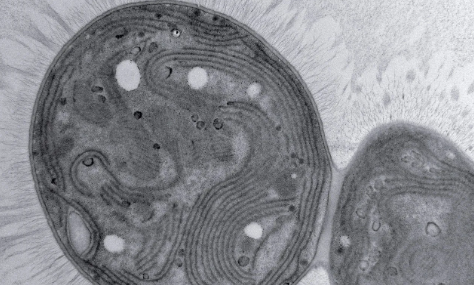Discovery of Novel Cyanobacteria Strain Chonkus
Recent research has revealed a unique strain of cyanobacteria, known as Chonkus. This strain was discovered in the volcanic ocean vents near Vulcano, Italy. It thrives in high CO2 environments, making it important for carbon sequestration efforts. The findings were published in Applied and Environmental Microbiology.
Background of the Discovery
A team of researchers from the US and Italy conducted the study. The environment near Vulcano features abundant dissolved CO2 due to volcanic activity. The researchers aimed to explore how organisms adapt to high carbon levels. They hypothesized that some microbes could evolve to utilize this carbon effectively.
Characteristics of Chonkus
Chonkus exhibits rapid growth in CO2-rich waters. It has a natural tendency to sink, which aids in carbon capture. This strain’s dense growth makes it a promising candidate for biotechnological applications. Its potential for carbon sequestration could play a role in combating climate change.
Research Methodology
The research team collected seawater samples from volcanic vents. They used SCUBA gear to access shallow seeps rich in dissolved gases. The samples were transported to Boston for analysis. Scientists isolated and characterized the microbes present in the samples.
Collaboration and Funding
The project was a collaborative effort among several institutions. Key contributors included the Wyss Institute, Harvard Medical School, and the University of Palermo. Initial funding came from a proposal submitted by Max Schubert to a climate change symposium. This support enabled early research into the cyanobacteria’s capabilities.
Chonkus opens new avenues for research in decarbonisation and biomanufacturing. Its ability to thrive in CO2-rich environments could enhance carbon capture technologies. Further studies may explore its applications in producing valuable commodities. This discovery represents an important step in utilising natural organisms for environmental solutions.
Important Facts for Exams:
- Chonkus: Chonkus is a novel strain of cyanobacteria discovered in volcanic ocean vents. It thrives in high CO2 environments and shows potential for carbon sequestration and bioproduction.
- Wyss Institute: The Wyss Institute at Harvard University focuses on bioinspired engineering. It conducts interdisciplinary research to develop innovative solutions. The institute collaborates with various universities and organisations worldwide.
- SeedLabs: SeedLabs is an organisation that supports innovative research projects. It provides funding for scientific expeditions and experiments. The initiative aims to promote advancements in environmental sustainability and biotechnology.
Month: Current Affairs - November, 2024
Category: Science & Technology Current Affairs


